I’d like to address the topic of creative burnout and exhaustion today, since this is something I have dealt with in the past year(s) from time to time, and I know it’s also something that a lot of other artists are affected by. This blog post has been written with other self-employed artists and colleagues in mind, but I think you can definitely get something out of it too if you’re pursuing art in your free time.
Acknowledging burnout
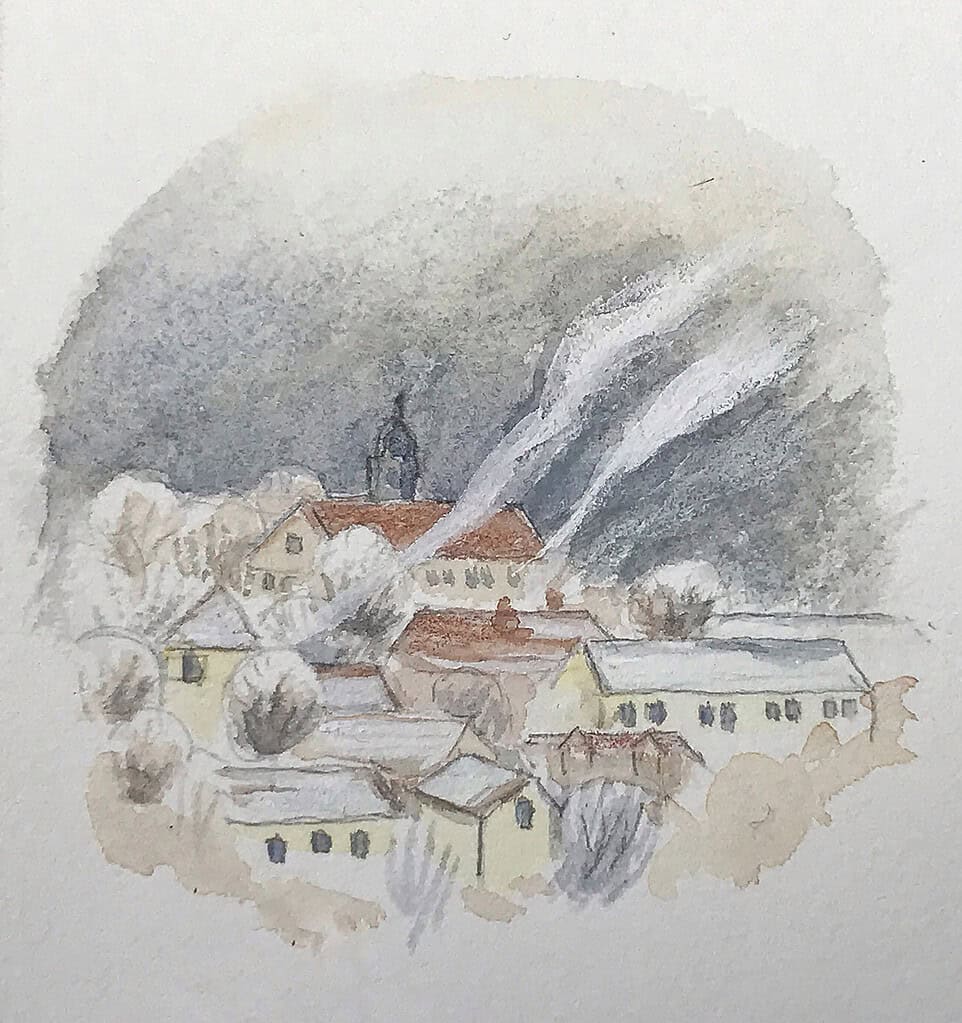
I think the first step to deal with burnout is that you have to acknowledge it. If you feel stressed and tired, don’t have the energy to create something, and wish you could just do nothing, you’re very likely exhausted. If this exhaustion stays with you for a while, and you feel increased distance from your creative work or you start to feel negative or cynical about it, then you’re probably burnt out. Burnout is not a classified medical condition, but it’s strictly associated to job-related contexts.
Nevertheless, whether art is your job or your hobby, none of us is a productivity or creativity machine, we all need time off, we all need to manage our own expectations about ourselves and our lives – and our art.
I think we’ve all gone through a lot in recent years, I won’t recite it all again, you know the kind of times we live in. It’s just so exhausting. And on top of that some of us have to deal with stuff that’s going on in our personal lives – family matters, chronic illness, and so on.
I think it’s no wonder a lot of us feel burnt out and tired. And creative expression doesn’t respond well to that, in fact it’s often the first thing to go. So I think we need to remind ourselves from time to time, that all of us are real human beings with boundaries and limitations, and we usually can’t go into creative mode at the push of a button, as much as we wish. I’ve had a much easier time recovering from hard and stressful times when I acknowledged and allowed that. If I push myself too far (which is what hustle culture wants us to do), I end up even more burnt out and exhausted.
How I deal with creative exhaustion and burnout
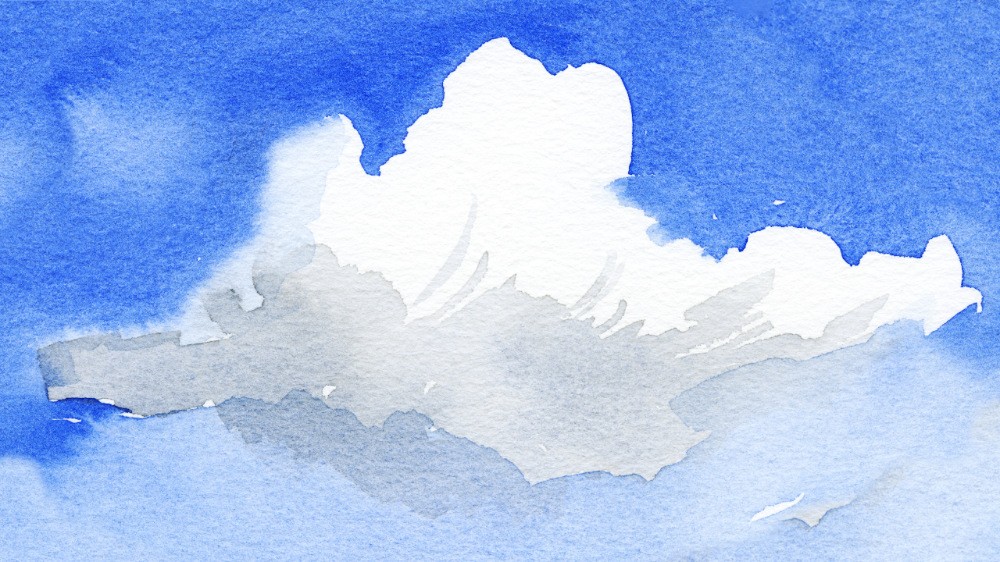
Now, seeing all this doesn’t make it better immediately, but it can let you make a connection to yourself again, to the things you might need at the moment. I very often try to stop and listen to myself when I feel exhausted and tired, and I ask myself: what do I need? What would help me right now? What do I need to stop or change?
And when I feel creative burnout, very often what I allow myself is time away from making art – through hobbies, taking breaks, focusing on other things. Since art is my job, I allow myself time off from it on the weekend. That doesn’t mean I don’t sketch at all during these days, but I take a break from my inbox, from writing, blogging, course creation, admin stuff, comments and all of the other things that are also part of a creative business. But if I want to sketch, I do that. Of course, if you feel burnt out from a non-creative job, art can be a great way to deal with that. Use this. Sketching can be a very soothing activity if you turn off your inner critic.
Probably the biggest single factor that I find helpful to relax is nature. Being outside, or taking my time to look at something in nature, or going for a walk, just never fails for me. In order to take a break from constant creative pressure, I will leave my sketchbook closed during these breaks, knowing I will feel it when I’m ready to return.
These can be short breaks, like a few hours, or longer breaks, like a few days. This time away often gives me a kind of breathing space that can even lead to new ideas.
Another very effective method for me is cleaning, when I have enough energy for it. It’s a manual task that focuses my thoughts, and I can often think much better when I look at tidy room where I’m only surrounded by things I like. I try to start each day with a tidy desk that has minimal clutter. It doesn’t always stay that way, but it helps to start with it. Of course, during burnout it can be hard to keep order in your things because you lack energy. On days like this I try to find the least chaotic space in my flat.
Very often during this process, I try to make space – internally and externally. That doesn’t mean I throw everything out, but I often make space in my art drawers – I give away materials I don’t use, or sell some of my artwork (I have a small Ko-Fi shop with original artworks if you want to take a peek.)
I think a break can also be good when art is your hobby, and you just feel overwhelmed or not really happy with it at the moment. It’s vital to refill your creative inventory from time to time. Read a book, go to an exhibition, watch a movie. Just don’t watch too many tutorials or compare yourself to others.
Of course, taking care of yourself, of your health, your body and your psyche, is also really important. That includes (if you’re a working artist) treating your creative profession as as a job rather than an obsession, with normal boundaries such as weekends, having rules around time off, taking vacations, setting a schedule for yourself. I know this is incredibly hard for a lot of self-employed artists, but if you want to stay in your job, you need to figure this out. Restricting screen time and time in social networks is another really vital aspect for me. I also recently switched my to do list and project planner from digital to analogue, and this works much better for me.
Taking care of your health also includes being nice to yourself (something I had to learn over years) – that includes less perfectionism, no overworking, no hustle culture, giving projects time to develop, and not putting yourself down when a project falls through or you had a misstep with a client or customer, or when you can’t work as fast as you thought you could. These things happen, and the best thing you can do is learn from them, not making yourself more miserable on top. I’m writing this as much for me as for anyone else. It’s really ok to be less productive, or to be slow and lazy sometimes. It’s ok to make mistakes. We’re not machines, and we’re not living solely to feed the capitalist productivity machine.
One thing I find helpful in this area is to look back at what I’ve done over the years – not only in my artwork, but in my art business, and that reminds me of how far I’ve come since then. If you are overly self-critical, try to imagine what you would tell a friend if they were you – very often that reduces the perfectionism and self-critique a lot. I believe we all need to learn how to be more kind to ourselves.
Prevent burnout – build better working conditions for yourself
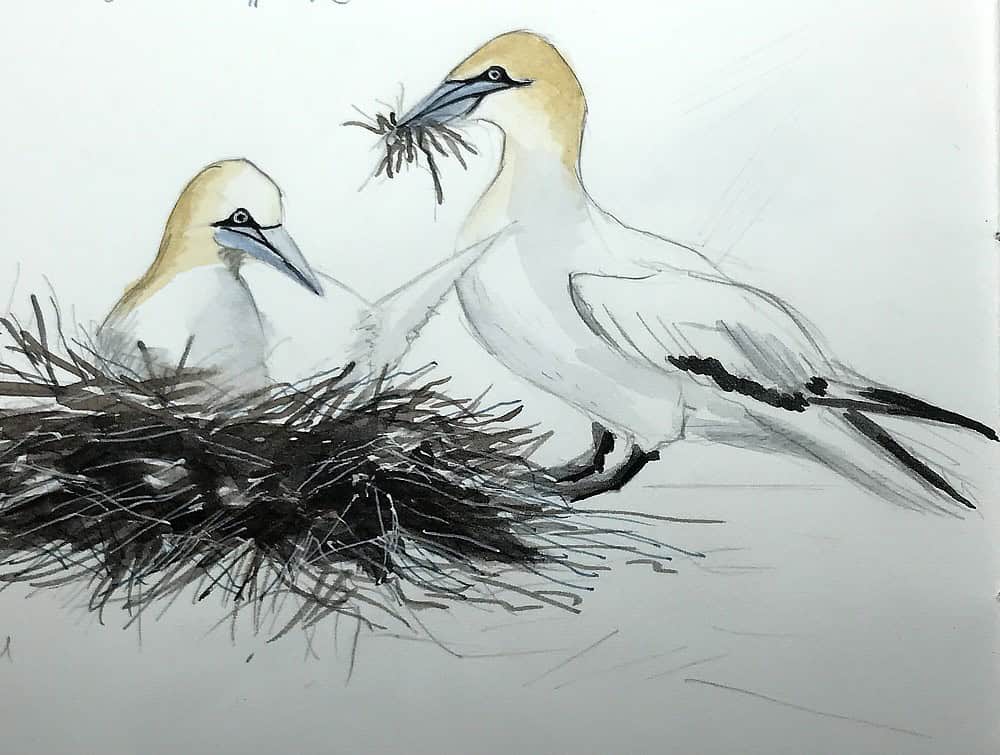
One of the techniques I have found helpful to get myself out of burnout and exhaustion is to prevent I will stumble into it again at the next opportunity. So I’ve been trying to find our how I can prevent overly stressful and exhausting scenarios from happening.
The main driver for me has always been to create better working conditions for myself. Unfortunately, these days that’s not as easy for artists.
Whatever else you do, don’t give in to unrealistic expectations and awful contracts, or exploitative working conditions. There are many of those out there, including most publishing deals and some contracts with corporate clients. Be very careful and prepare to negotiate a lot (and very often just walk away from the offer).
For me, bad working conditions include most of social media (working for free or “for exposure”) and other commercial platforms that have been brought to us by big tech, because these are never on your side. Just say no to those.
And definitely reconsider your relationship to social media. If you’ve followed my blog for a while, you know where I stand. I don’t believe the corporate platforms are good for us as artists, or as people, or good for our creativity. And they don’t care about it, either. So consider taking a break, or leaving entirely, or try out a non-commercial alternative if you still like the connection aspect but want less of the pressure to perform. For me this has made all the difference.
For professional artists who believe they need the commercial platforms for their business, consider using a scheduling service that will let you post without getting sucked into the feed.
How to overcome creative block by making art
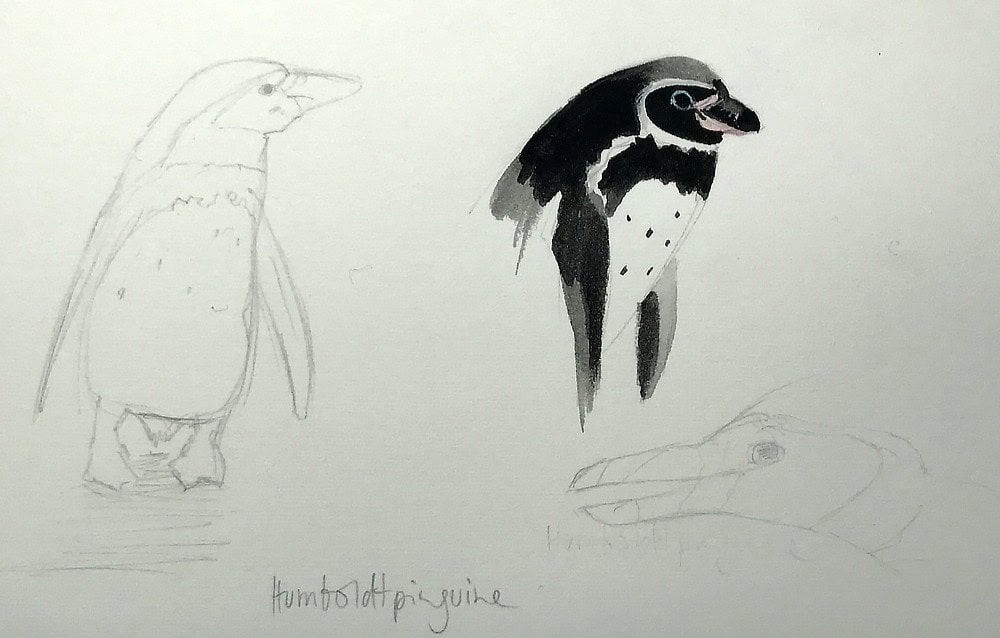
I often sense when I feel ready again to make art. Very often I just feel pulled towards making a note, or capturing something on the page, or getting my paints out. I don’t resist these moments, and I try to approach art with no pressure, and no duty to perform or produce anything (please don’t monetize your hobbies exactly for that reason, or you will come to hate them after a while. “Monetizing what you love doing” is an idea that’s brought to you by hustle culture and the gig economy, which is not exactly a recipe for a stable income or a healthy workload).
When I feel creativity slowly returning, I try to start with small things: small projects, doodles, silly experiments I feel like, exploring new tools or techniques, painting color swatches. A while back I’ve played around with drawing small pirate maps (with islands and little ships and sea monsters), just for my own entertainment, and I had a great time. These personal playgrounds are a great way to goof around, to satiate my curiosity for weird things and to make art more fun.
I also limit my “content creation” (another awful term that big tech has bestowed upon us), and only put out as much as I feel comfortable – usually I write more during these phases, and create less video stuff, since the latter is very draining. I know it’s part of my job to keep you entertained, but I need to do it on my own terms. Video is just too much to do sometimes. This is why this blog post is not a video. 😉
Very often, when I return to my work after a break, I see that I’d like to concentrate on what is already there and deepen it, instead of working on too many new aspects in my art. But this will be different for every artist.
I really hope this long post contained something helpful, I know not everyone who reads my blog needs tips for dealing with burnout as a working artist, but I think these ideas can be helpful for art as a creative hobby, too. What do you do to keep exhaustion and burnout at bay, or to recover from it?

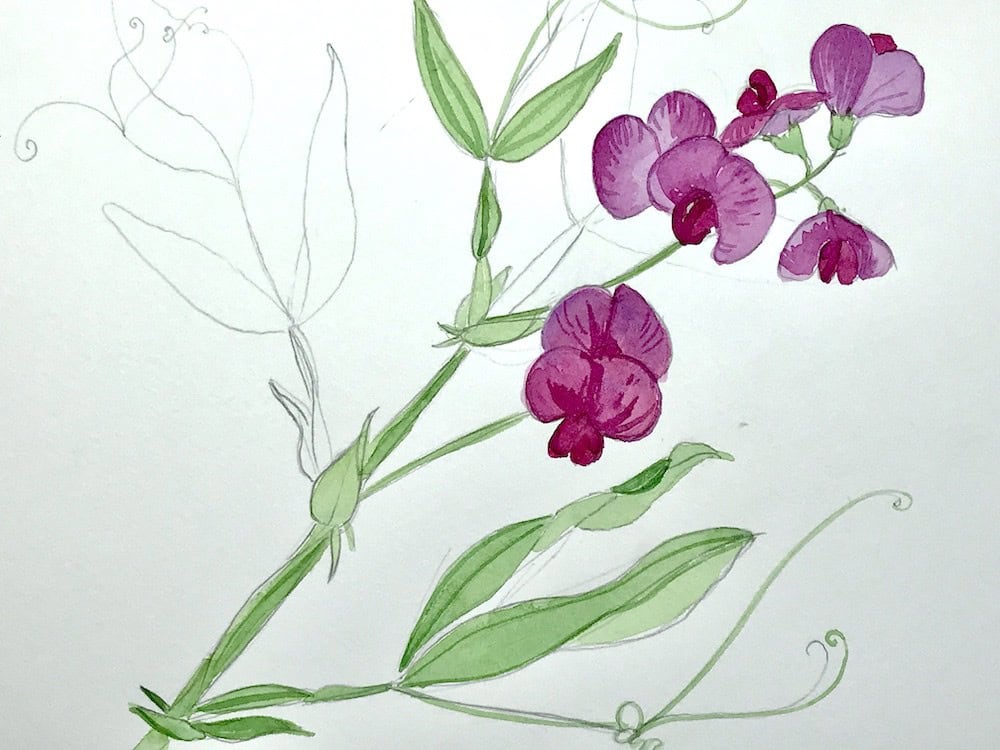
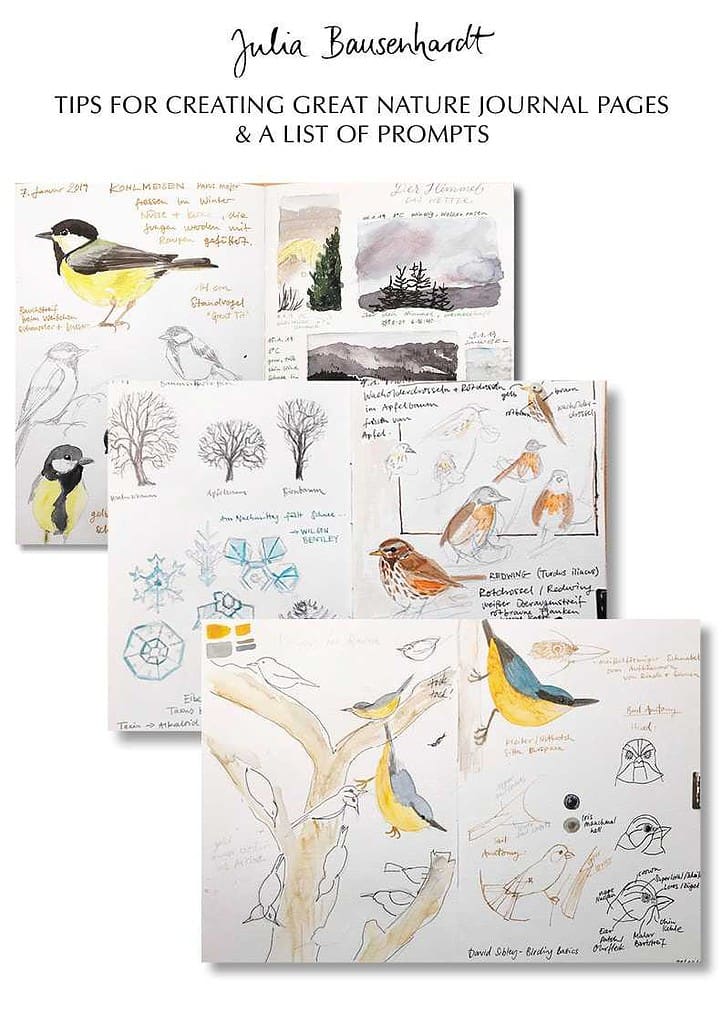
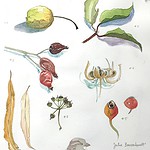

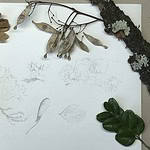
Hi Julia,
Thank you for writing this. It was very helpful to me and your advice, based on experience of what works for you, can be applied to everyone who suffers from fatigue and/or burnout from time to time. If I can muster the energy, a walk outside somewhere away from lots of people, loud noises and unpleasant smells (often triggers for me) always helps. Like you, I only take my sketchbook if I have an intention to draw built in to the plan. I don’t ‘do’ social media but I do worry too much over the news, and I try to cut back on contact with it, even if it seems like dodging one’s responsibilities. I also find too much sugar can make fatigue worse, but everyone’s different in their response to foodstuffs.
Hi Gill,
I can relate to being sensitive to smells and loud noises, those can be very exhausting.
I too consume too many news than is good for my mental health. It’s definitely a difficult balance to stay informed but not being pulled into it too much. I used to be very oblivious about what’s going on, but I no longer feel comfortable with that either.
Food is difficult to figure out, yeah. A big improvement for me has been to strictly avoid the things I’m allergic to, and really not eat them even in small doses.
Dear Julia,
Thanks for this blog. I am not a professional artist, but I prepare taxes and am a bookkeeper. I try to allow time for my art as a break and relief from that job. But, I too put pressure on myself with my art, feeling I am not good enough, etc. Therefore, many, if not all the point you made along with the comments from Gill, truly resonate. I was just thinking yesterday, how I wish I could make art my profession and get away from the stress of taxes, but perhaps I should just strive to enjoy it more. I have found myself taking more classes, watching more tutorials, and playing less in my striving to better my art skills, thereby adding more pressure to take more classes. Yesterday, I took a pottery class and made myself the “perfect palette. The switching of gears, the physical slapping of the clay, then the working on it was very relaxing.
Sorry to be so long winded, but I did enjoy the blog, and will save it. All of the points are truly applicable to any stressfull, or exhaustive period in life.
Thanks
Fran
Hey Fran, it’s kind of funny (or sad), when I feel too overwhelmed by my art-related tasks, I sometimes do my bookkeeping because at least that’s so straight-forward and based on routine. So yeah I very much think this is related to what we perceive as stressful and as relaxing. I think once something becomes your job, there’s more pressure in it. With art, I always try to keep the entry point easy so that I can always come back to it. I have to try pottery as a hobby at some point, it sounds so nice.
Best wishes!
THANK YOU! This is truly helpful and calming!!
Thank you Janet! <3
Worth the time you put into crafting this blog post. So many good points anyone should take to heart. I especially could relate to where the idea of being encouraged to monetize everything can lead. It can kill your creative desire quicker than anything and diverts your focus away from where it should be.
Yeah, I’m really glad that I have a few hobbies that can just be hobbies, without the need to squeeze something out of that.
You have shared a very thoughtful perspective on life – thank you.
Thank you Liz! 🙂
Hi Julia, this is such a great post! I am somewhere in-between as my art is not my day job, but I do sell art (occasionally these days).
I totally agree with you about not monetizing your hobbies!! I have tried to do this with several creative hobbies of mine and I always end up realizing that it takes away some of the joy of doing something just because you enjoy it.
So now, I create art mostly for myself, but I sell art online because I like to, and I also have a website/blog (also for fun).
Hi Kristen,
that sounds like a good balance you found there. 🙂
I definitely know the feeling. I’ve seen quite a few art & crafts friends fall into this, it is heartbreaking. I defnitely felt how my approach to art changed after having it as a job. It’s so important to have creative time for yourself when you can just enjoy and experiment, and follow your own ideas.
Hi Julia,
I really enjoy your blog posts!
As a self-employed artist, burnout is indeed a fraught issue for you.
Take care of yourself and know that your followers appreciate anything that you do.
Wendy
PS no need to respond to this message!
Thank you so much dear Wendy, I really appreciate your words! <3
Hi Julia,
Thankyou for breathing freshness back into the day.
Sometimes I walk past my desk or sketched works and just go ‘not at the moment’.
You’ve made me feel this is ok.
Have a wonderful day.
Kindest wishes
Bernadine
Yes, it’s absolutely okay! You will come back to it when you feel like it. 🙂
Lots of great food for thought. I love the reminder that we aren’t creating machines and can’t go into creative mode at the push of a button. How is that so easy to forget? Thanks for sharing. I always get so much out of your posts.
I guess with the ubiquitous focus on being more efficient and being our best selves all the time it’s very easy to fall into this. Plus maybe the image we want to have of ourselves – I guess most of us would like to be creative and amazing all the time, because it feels good and makes others feel good. So it’s totally understandable when we try and fail.
So true.
Hi Julia,
Thanks for sharing your thoughts on this subject.
Best wishes from Harriet
Thank you Harriet! <3